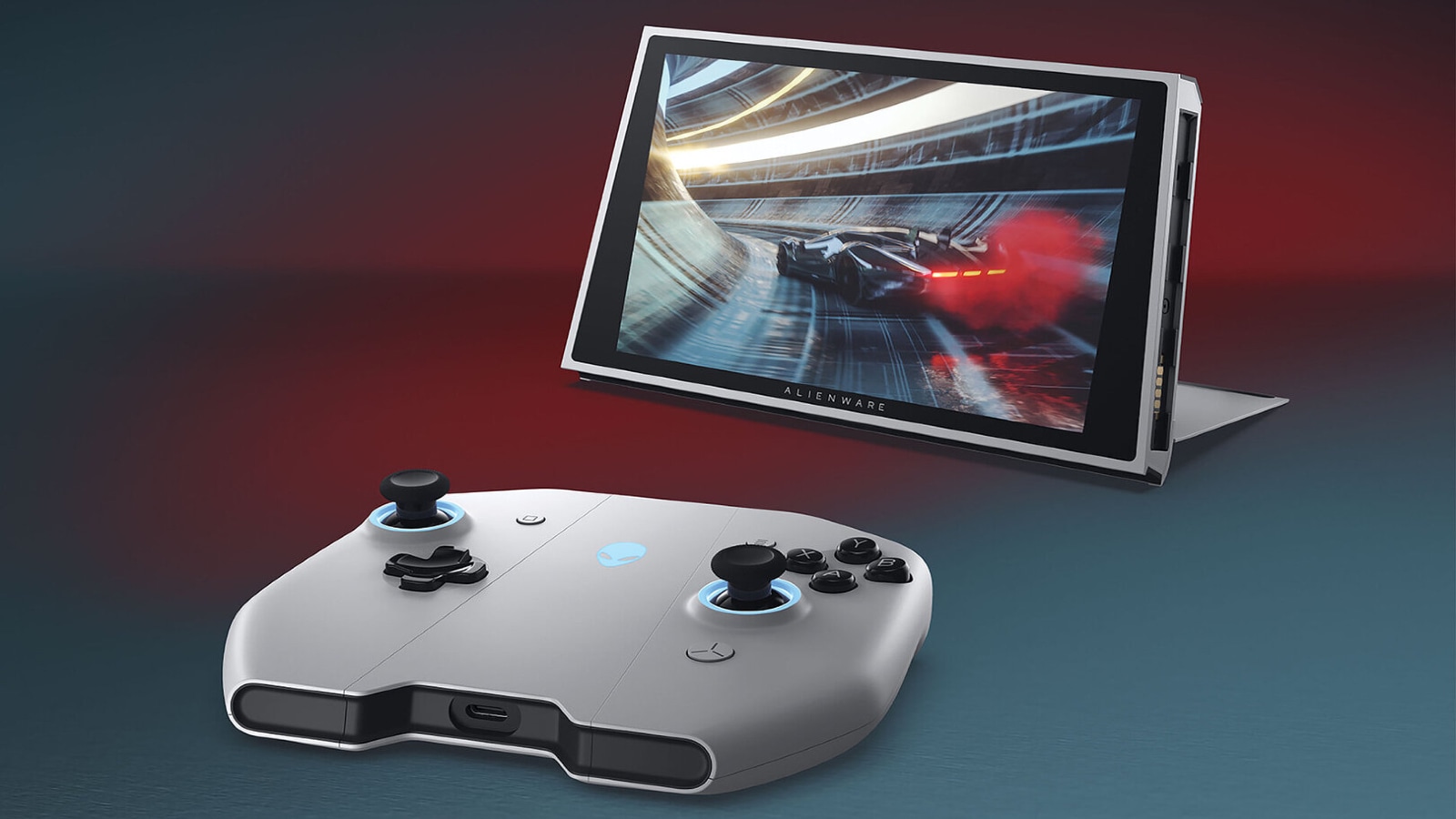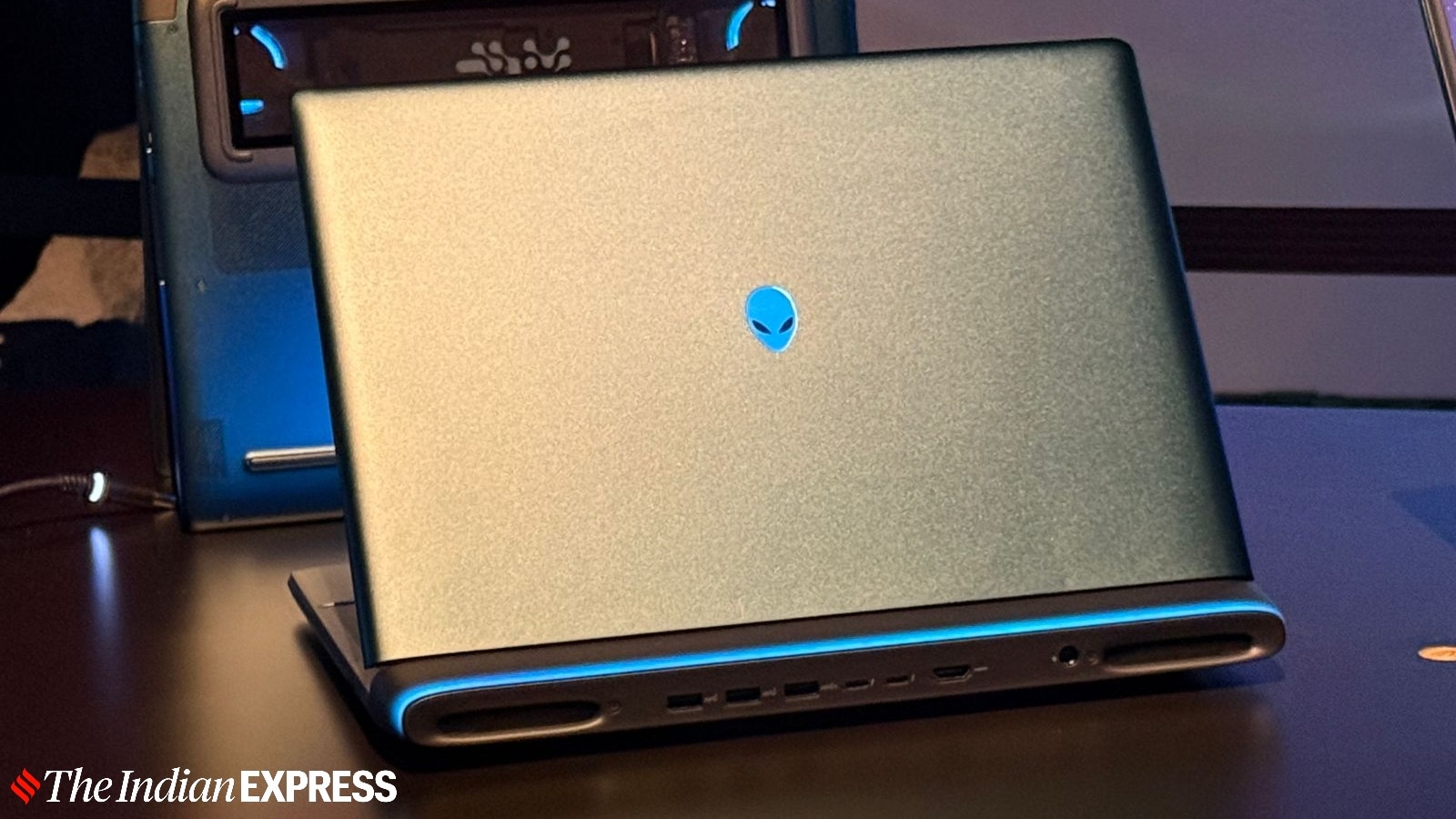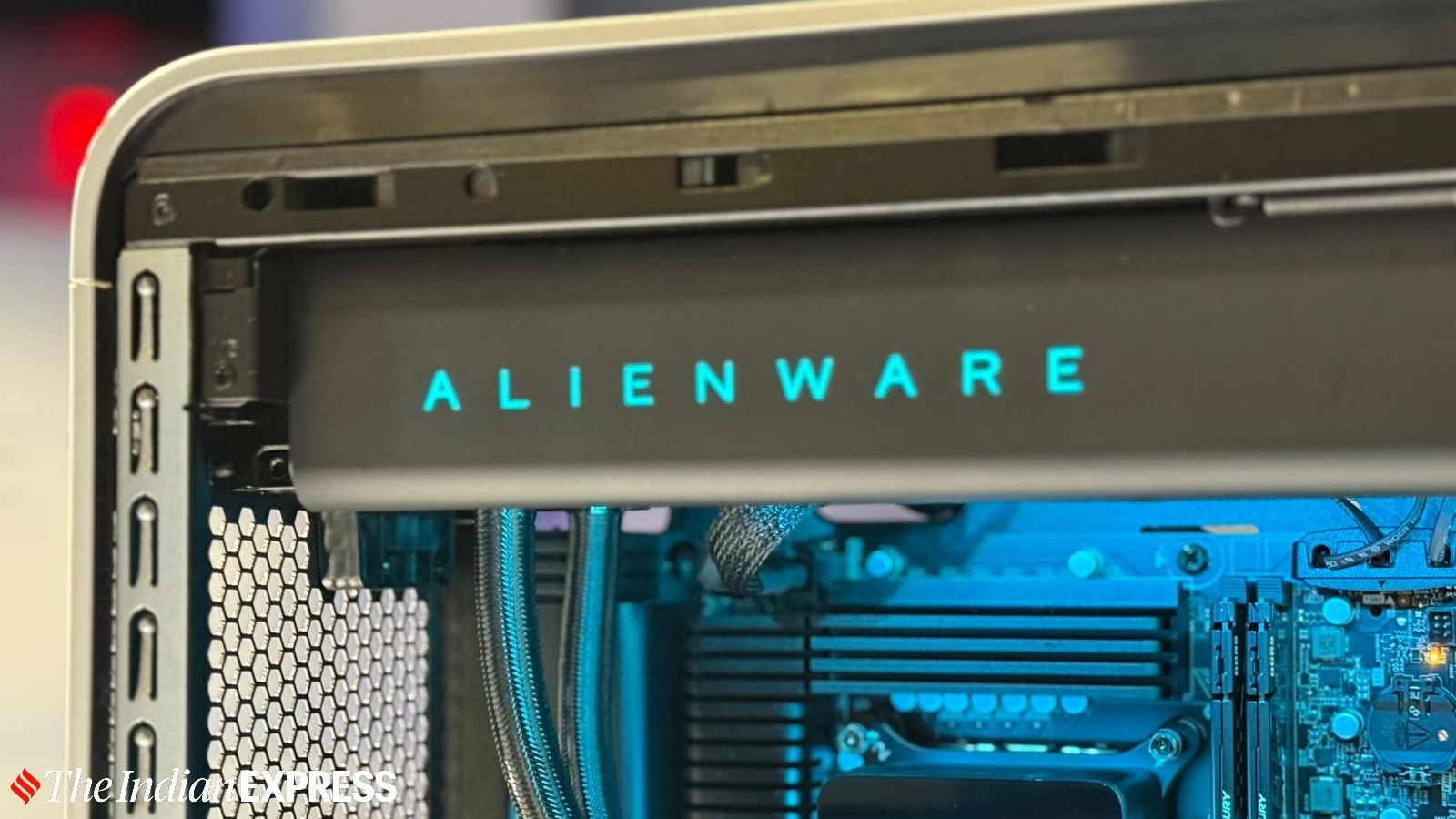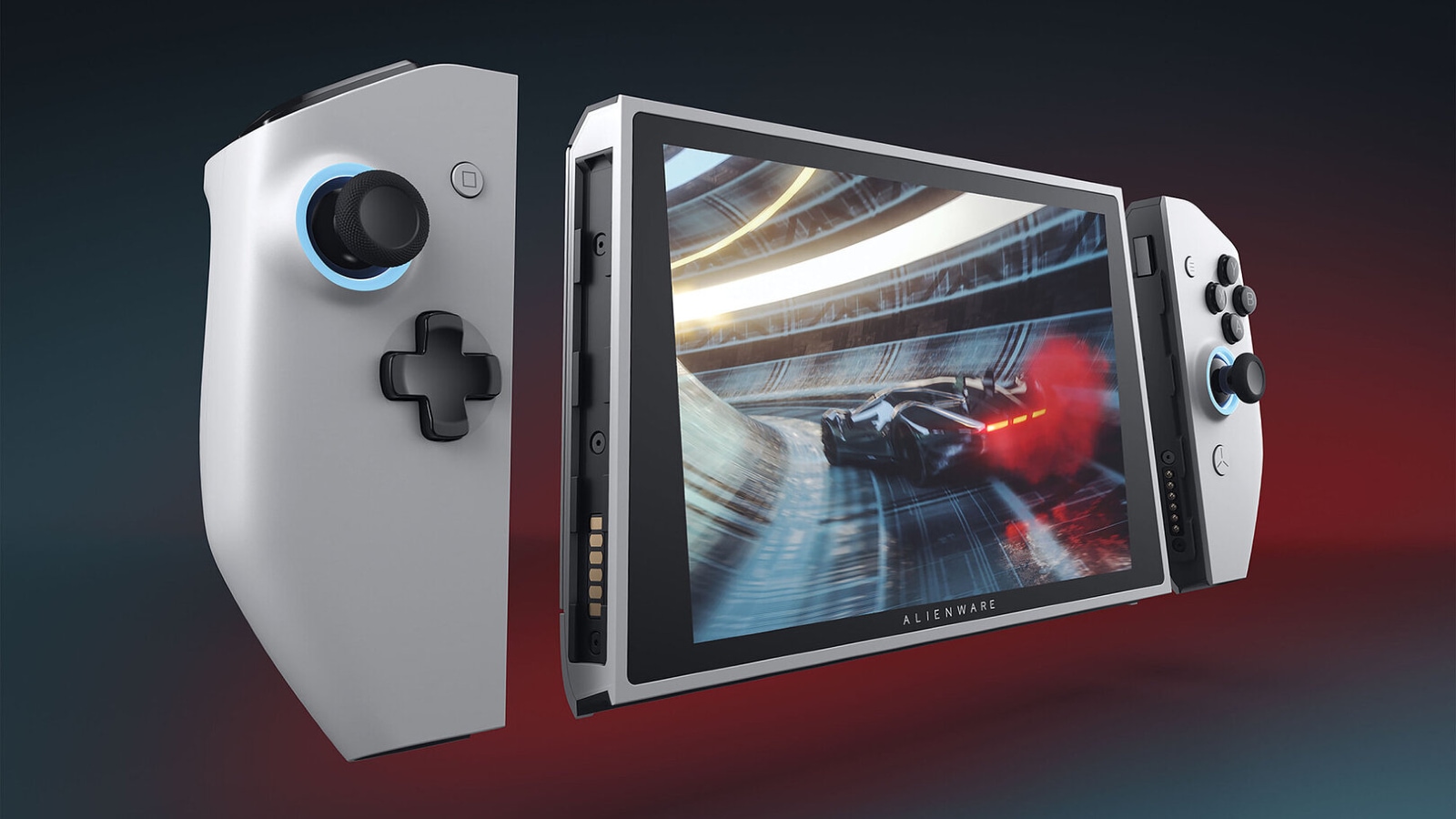[ad_1]
Dell’s high-end gaming brand Alienware is closely looking at the handheld PC space, citing deficiencies in existing portable gaming PCs and the market’s potential. “Many customers return these products because the battery life isn’t great, or they felt it would be like a PC. The software isn’t right—it’s too kludgy, and they have to navigate through a very small Windows environment. Due to these elements, we believe the timing isn’t right at the moment,” explained Matt McGowan, General Manager of Alienware, during a pre-CES 2025 briefing in New York.
McGowan added that doesn’t mean it won’t be right in the future. “I think this market will continue to exist. Whether it grows like the PC category or remains flat due to obvious constraints, such as screen size, remains to be seen. It’s still a relatively new space, only a couple of years old, but it’s a space we are looking at pretty heavily.”
“The handheld space is really interesting,” accepts McGowan, remembering how Dell had worked on Project UFO as a concept. “Even though it looked very polished, it wasn’t actually that mature internally. It was essentially a collection of pieces put together to create the concept. Other competitors have obviously taken that idea, run with it, and sold units.”
 The prototype PC handheld featured an 8-inch screen and detachable controllers. (Image credit: Dell Technologies)
The prototype PC handheld featured an 8-inch screen and detachable controllers. (Image credit: Dell Technologies)
‘PC handhelds don’t match the elements of the Nintendo Switch’
Nintendo’s Switch has dominated the handheld gaming space for years, and McGowan acknowledged that existing gaming PCs don’t match the elements the Switch has brought to the market. “If I compare the products out there to the Switch, they are very different. But the Switch also has a clear advantage—it’s much more affordable. The device is significantly lighter, hyper-portable, and offers a seamless experience. Launching games and navigating the interface is effortless, and the performance meets expectations for the Nintendo ecosystem.”
“They [current portable gaming PCs] don’t quite meet all those factors. They do an okay job, but I am not really satisfied with that,” he continued. “Sure, there may be a market where people are willing to accept those deficiencies in the product, but it’s just not a step we are willing to take yet. We don’t want to offer a compromised experience and say, ‘Hey, consumer, this is good enough, right?’ We don’t believe that approach is worthy of the Alienware branding.”
The success of Valve Corp’s Steam Deck has expanded the reach and potential market for portable gaming handhelds, enabling users to play PC games on the go. However, many players have since entered the space, including old guardians in the PC industry. While these handhelds are not replacing traditional gaming PCs, they represent a growing demographic that many companies are keen to capitalise on.
Story continues below this ad
McGowan, however, doesn’t see PC handhelds as a substitute for gaming PCs, which also explains why Dell hasn’t launched a competitor to handhelds from Valve and Asus on the market. “We don’t see it as a substitute; it’s really an incremental product in the ecosystem, which is a good thing. However, we haven’t seen that handheld has shrunk the notebook market,” he said.
 Alienware’s Area 51 laptops have 18-inch and 16-inch screen sizes and include Nvidia’s next-generation graphics. (Image credit: Anuj Bhatia/Indian Express)
Alienware’s Area 51 laptops have 18-inch and 16-inch screen sizes and include Nvidia’s next-generation graphics. (Image credit: Anuj Bhatia/Indian Express)
‘Mac doesn’t offer a superior gaming experience’
While PC gaming has historically been a strong forte of Dell with its Alienware brand, Mac hardware has never quite gone toe-to-toe with some of the best gaming PCs. However, with its silicon Apple is seemingly pushing performance higher and introducing more gaming-focused software optimisations for developers and users,” McGowan responded when asked how he sees a Mac as a gaming machine.
“I think the reason people like to game on a Mac is because of the device’s form factor. I don’t think they’re necessarily getting a superior experience. Maybe they’re using the device for both gaming and non-gaming purposes, spending less time gaming and more time on other things where they value things like better battery life,” he continued.
Story continues below this ad
For McGowan, the big opportunity for Dell is to take advantage of users who could potentially enter the gaming ecosystem as Apple strengthens the Mac hardware and makes it better optimised for gaming. “The onus is on us, and the Windows ecosystem as a whole, to deliver a better experience. If Apple wanted to commit fully to gaming, they could do it, but it would take time. To me, that would mean even more users engaging in PC gaming, which is great. That’s beneficial for everyone.”
‘Alienware looks at price-sensitive consumers in a shift in strategy’
 The Area-51 desktop is Alienware’s flagship gaming PC. (Image credit: Anuj Bhatia/Indian Express)
The Area-51 desktop is Alienware’s flagship gaming PC. (Image credit: Anuj Bhatia/Indian Express)
Alienware is known for selling incredibly powerful, but pricey, gaming PCs. Its latest lineup, showcased at this year’s Consumer Electronics Show in Las Vegas, includes the new Area-51 desktop and Area-51 laptops, both featuring designs reminiscent of the iconic Area-51 debuted in 1998, representing Dell’s attempt to appease pro-gamers and enthusiasts who have long been Alienware users, a segment of users that has driven the brand for years.
McGowan acknowledged that not everyone can afford a device like the Area-51 desktop, which costs $4,499 for the launch configuration. For McGowan, the next step is to make the Alienware brand more accessible by launching products at a lower tier, allowing consumers who have always wanted to buy an Alienware PC to get a taste of it.
Story continues below this ad
“We want everybody to be an Area-51 customer and not everybody can afford that, and not everybody aspires to it. Some people just want to play games and have a budget for it. So, later this year, we will be coming out with notebooks that are more price-sensitive than what we have historically offered with Alienware,” he said, adding that the company plans to phase out the G series and gradually migrate away from that sub-brand. This way, all gaming products under Dell Technologies will be Alienware.
McGowan said Alienware has also gone through a similar rebranding exercise as Dell, where the mainline series now fall under the Dell, Dell Pro, and Dell Pro Max branding. However, the rebranding within Alienware was more focused on the gaming side, while keeping the brand identity in mind.
“We did a similar exercise on the gaming side because we had a similar question: Do customers really understand the G, M, and X series? The pretty much unanimous feedback was, ‘We really don’t understand that. We don’t really know what it means.’ So, we asked, ‘Okay, well, do you know what Area 51 means, even though we didn’t have an Area 51 product at the time?’ And the feedback was, ‘Oh yeah, we know what Area 51 means. That means maximum performance.”
McGowan is of the view that the type of customers who entered gaming during the pandemic and post-pandemic are different from traditional gamers. According to him, the concentration of gamers at more aggressive price points is huge. This is one of the reasons why the company decided to overhaul the lineup, keeping new-age consumers in mind.
Story continues below this ad
“We thought, is it more valuable for us to service those customers with G Series products and then completely disassociate Dell G from Alienware? Or is it more valuable to address those customers with Alienware? After a long deliberation, we came back and said, “It’s really more valuable for us to introduce new gamers to the space, to the Alienware brand, and give them a path.”
Going forward, Area 51 will sit at the top, followed by Aurora and other lineups, with Alienware also planning to introduce new Aurora laptops, extending the same brand nomenclature used for desktops to notebooks. McGowan expects the entire transition to happen over the next 18 months, and the company will completely phase out the G, M, and X series, with everything eventually folding into the Alienware brand.
[ad_2]
Source link


